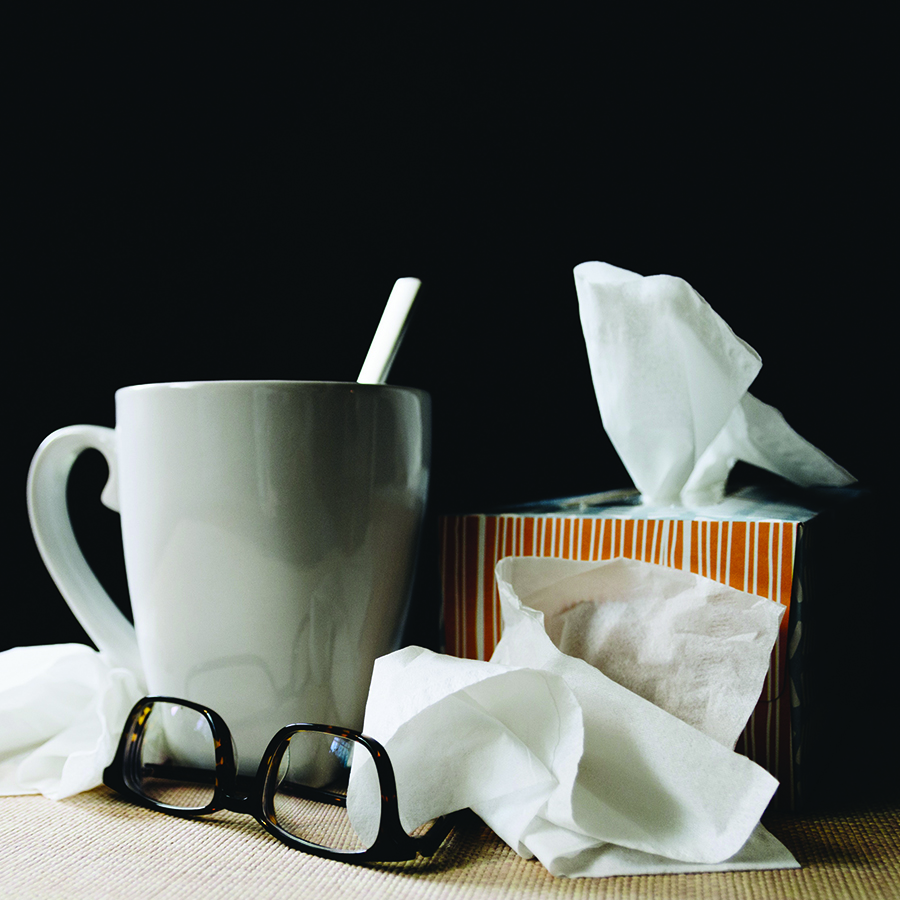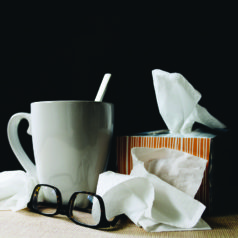In another study, researchers compared the immunity of sleep deprived individuals with well rested individuals over two weeks. Participants were given nasal drops that contained the common cold. Those who averaged less than 7 hours a sleep a night were nearly 3 times more likely to get the cold than those who slept for more than 8 hours (source, p. 11).
These studies all serve to further illustrate the importance of a good night’s rest. While we sleep, our bodies are busy creating vital disease-fighting substances. These hormones, proteins and chemicals are responsible for fighting off possible infections. Trying to get by on too little sleep decreases their availability, leaving you susceptible to unfriendly viruses and bacteria (source).
“A lot of studies show our T-cells go down if we are sleep deprived,” says Diwaker Balachandran, director of the Sleep Center at the University of Texas M.D. Anderson Cancer Center in Houston. “And inflammatory cytokines go up… This could potentially lead to greater risk of developing a cold or flu” (source).
Aside from playing a significant role in determining whether or not we come down with a cold, sleep deprivation also influences how our body responds if and when we do become sick. Since we lack the proper resources to defend ourselves against whatever is ailing us, we end up being sick for a longer period of time.







